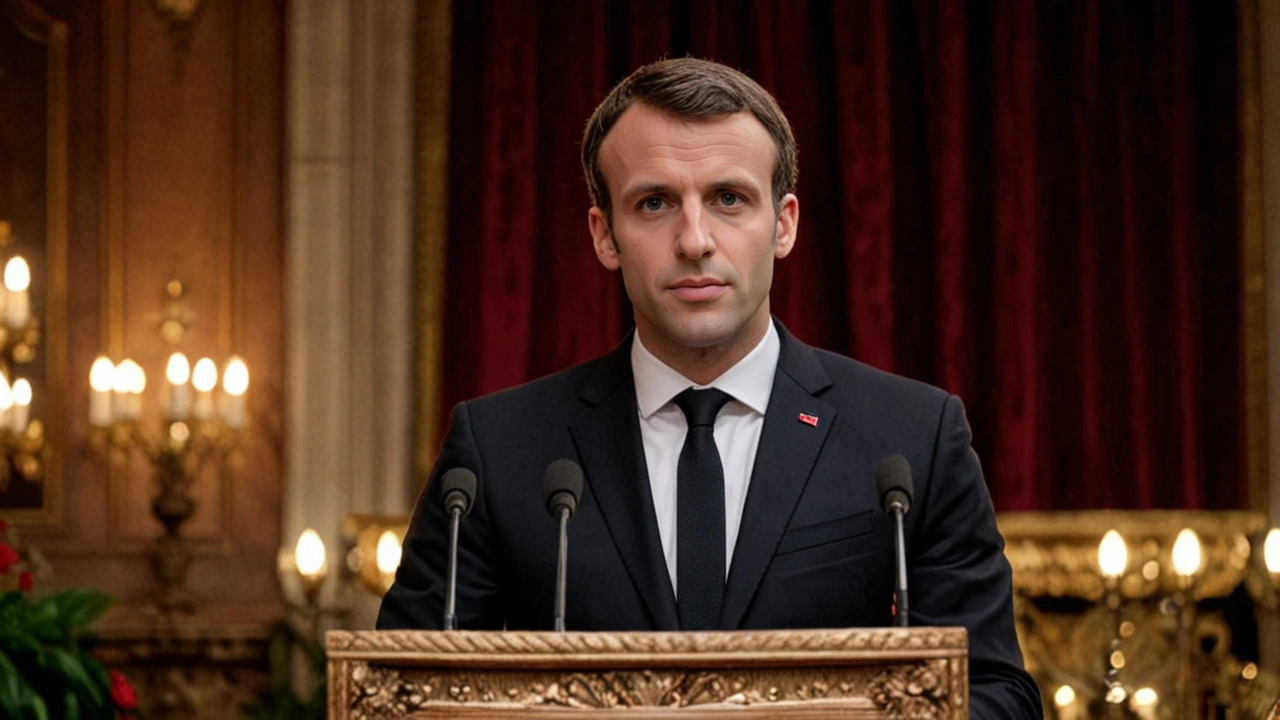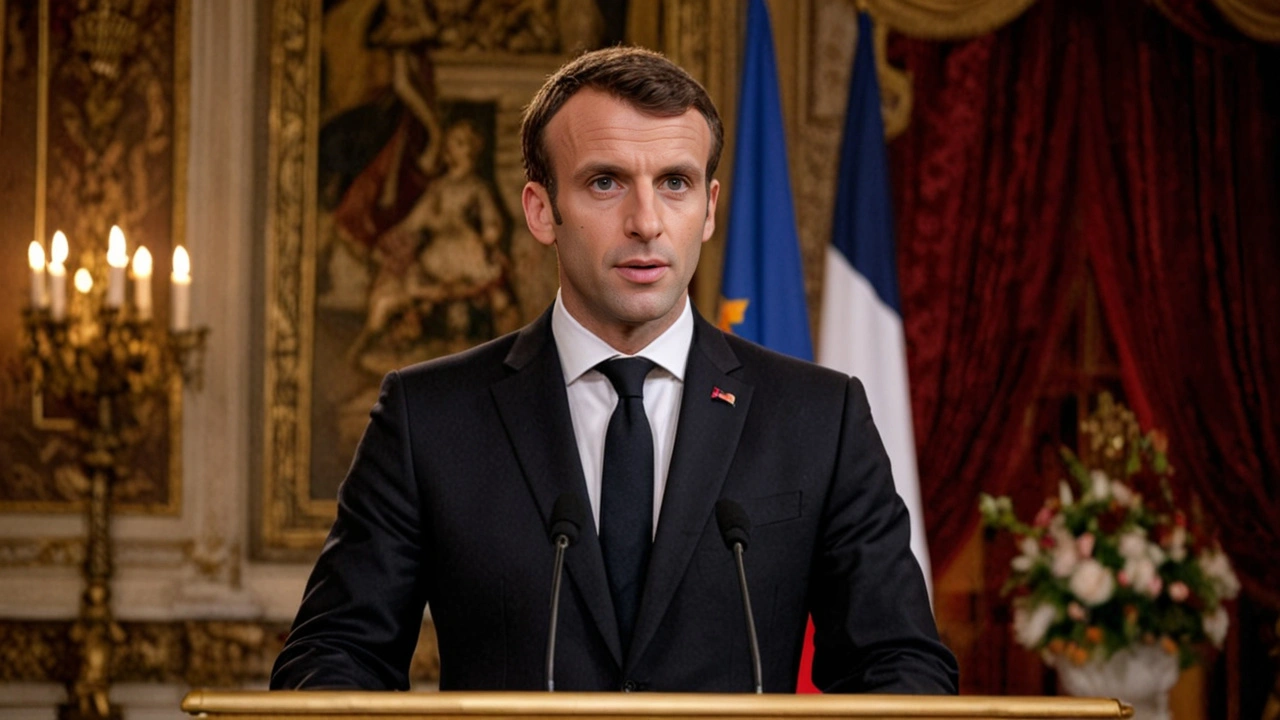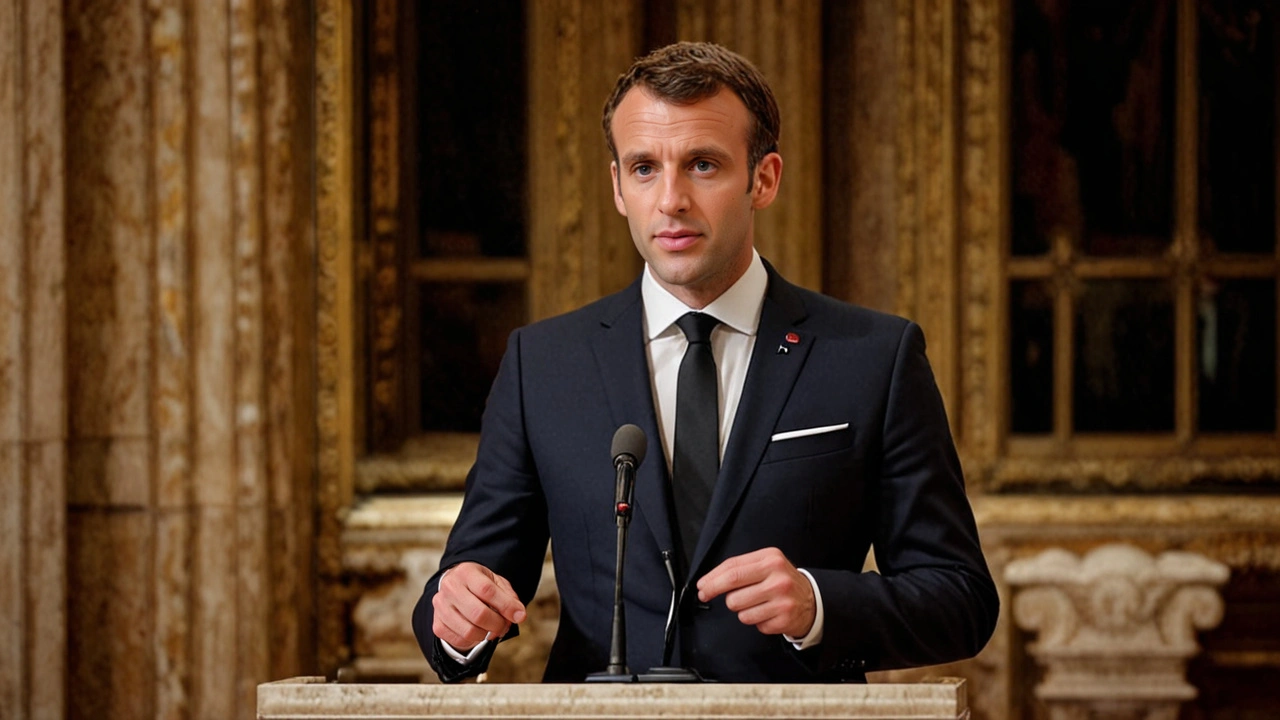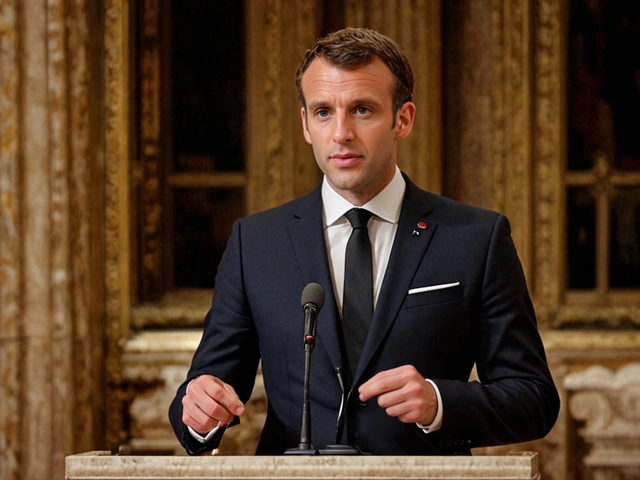Macron Navigates a Political Tightrope with PM’s Resignation and Immigration Laws
French President Emmanuel Macron has been seen maneuvering through a myriad of political complexities this past week following the resignation of Prime Minister Gabriel Attal. In a rather strategic move, Macron accepted Attal's resignation but requested that he continue to lead a caretaker government until a suitable successor is found. This delicate balancing act comes at a pivotal time as France prepares for the international spotlight of the upcoming Paris Olympics. Despite the nation’s focus on hosting this grand sporting event, significant changes in the country's immigration laws are also stirring the political pot.
Attal’s resignation is more than a simple administrative gesture. It paves the way for him to take his seat in the National Assembly, effectively allowing him to sidestep a potential no-confidence vote. While the caretaker government led by Attal is expected to manage day-to-day operations, the timeline for appointing a new prime minister remains ambiguous. This interim period is crucial, as it will not only see France gearing up for the Olympics but also implementing a series of controversial immigration law changes that have drawn widespread attention.

Immigration Law Overhaul: A New Era
Six months after its contentious enactment, sweeping reforms to French immigration laws have now come into effect. These reforms are encapsulated in a series of decrees published in the official journal. One of the most significant changes is the stipulation that foreigners seeking residency in France must commit to adhering to what the law terms 'the principles of the Republic.' These principles include personal freedom, freedom of expression, gender equality, human dignity, the Republic’s motto and symbols, territorial integrity, and secularism. Non-compliance with these principles could lead to the refusal or withdrawal of residency permits, adding a stringent layer to the existing immigration framework.
Aside from these ideological commitments, other legislative changes are aimed at tightening the screws on both asylum seekers and those employing unauthorized foreign workers. For instance, the conditions for refusal or cessation of material reception for asylum seekers have been toughened. Additionally, the mandatory administrative appeal against such decisions has been abolished, leaving less recourse for those affected by these measures. In tandem with these changes, an administrative fine has been introduced to penalize employers who hire unauthorized foreign workers, sending a clear message about the government’s stance on illegal employment practices.

Opposition and Controversy
The new immigration laws have not been without controversy. They have faced significant opposition from left-wing politicians and human rights activists who argue that these measures are inhumane and arbitrary. Critics say the laws go against the very principles of freedom and equality that they claim to uphold. The sheer rigidity of requiring foreigners to adhere to Republic principles, many argue, borders on ideological conformity. While the Constitutional Council did partially reject some aspects of the law, it was nonetheless enacted in January 2023, setting the stage for the current upheaval.
Critics point out that increased frequency of daily check-ins for those under house arrest awaiting deportation can lead to an erosion of human dignity. Moreover, the abolishment of the administrative appeal for asylum seekers removes a crucial layer of scrutiny and fairness, making the process more draconian. The introduction of fines against the employment of illegal workers, albeit a step towards mitigating exploitation, also adds to the sense of a clampdown that many feel is unwarranted.
The Political and Social Ramifications
The political ramifications of these sweeping changes are multifaceted. For one, Macron’s centrist approach is facing strain as he juggles between upholding national security and respecting human rights. The resignation of Prime Minister Attal, the implementation of new immigration laws, and the preparation for the Paris Olympics, all loom large, testing Macron’s leadership on multiple fronts.
Moreover, the social fabric of France is being tested, as these new immigration laws are perceived by many as targeting specific demographics. The mandate to adhere to Republic principles places additional pressure on foreigners to conform, which could lead to increased social tensions. France, a nation known for its democratic values, now stands at a crossroads, balancing security concerns with its foundational principles of freedom, equality, and fraternity.
Internationally, these developments are being closely watched. France's immigration laws serve as a bellwether for broader European trends, particularly at a time when immigration remains a highly sensitive issue across the continent. Macron’s handling of these issues could influence similar policies in neighboring countries, making the French political landscape a focal point for international observers.
Future Prospects
As France moves forward, the effectiveness and fairness of these new laws will be scrutinized meticulously. The world will be watching as the country hosts the Paris Olympics, a stage that presents both opportunities and challenges. Will France manage to uphold its values while enforcing tighter immigration controls? Can the nation strike a balance between security and human rights?
Only time will tell how these reforms will play out in the long term. For now, President Macron and his caretaker government, led by Attal, have their hands full with navigating a complex political landscape. As debates rage on, it is clear that France's journey through this transformative period will be as riveting as it is consequential.



18 Comments
Write a comment